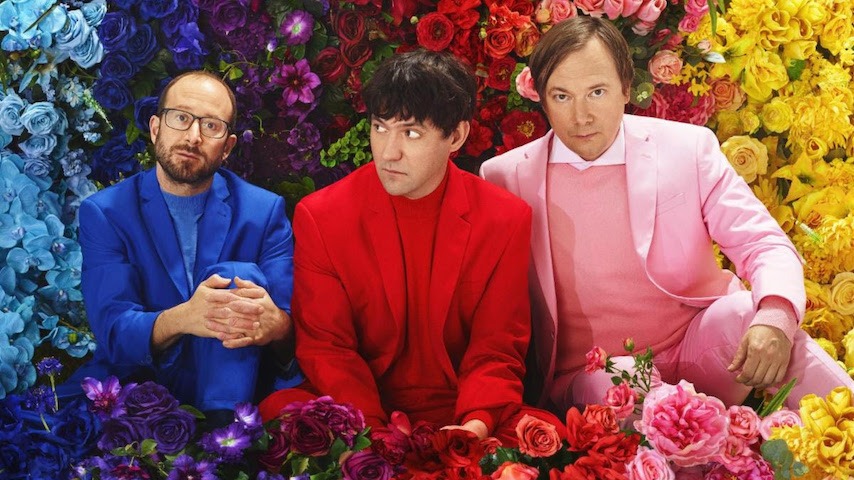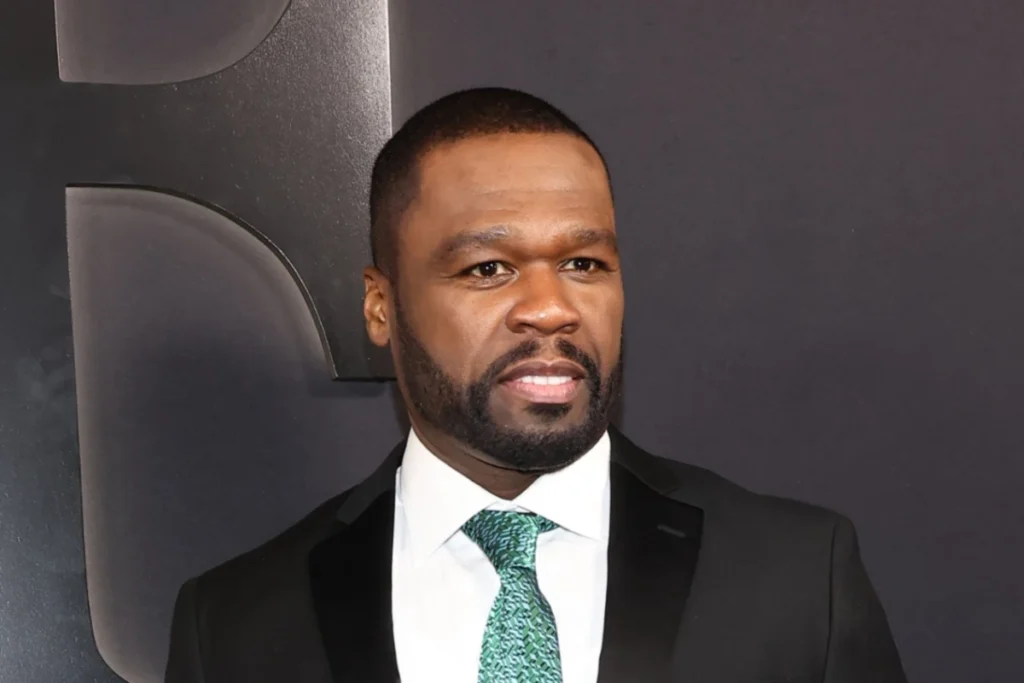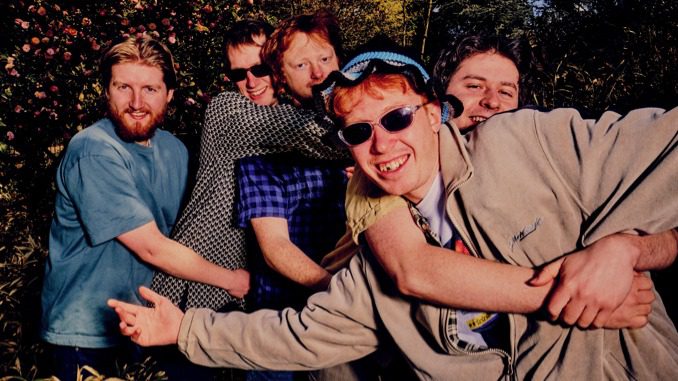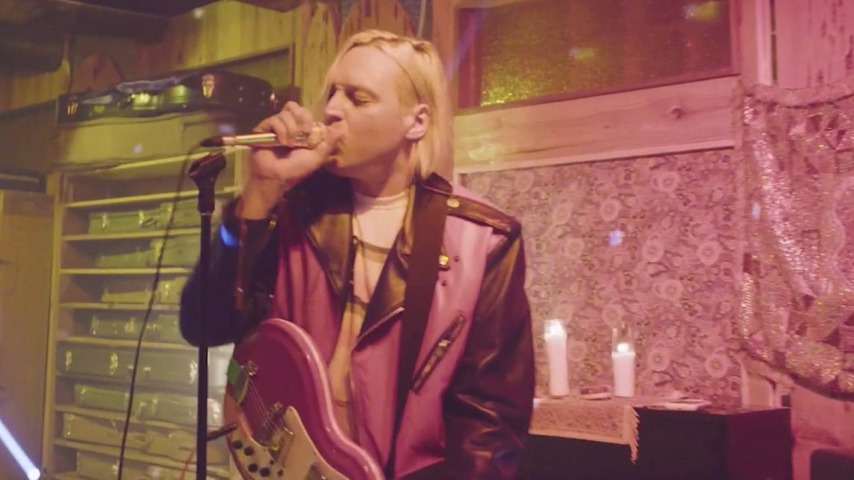Formed in 1995, Bright Eyes have released nine studio albums (with another one on its way later this month) and each of their records explore different sonic territories—folk, emo, country, pop, indie rock. It’s a tough and almost unfair challenge to rank their albums, much less their songs, but it’s a task worth exploring.
Still, with every album, the distinguishing factors remain: frontman Conor Oberst’s shaky, despondent vocals, and his existential, often story-like lyricism. At the heart of every song is some kind of revelation, whether it’s about love, lust, pain, or existence. In Cassadaga, this happens in a magical setting with cowboy vibes and no laws; whereas Digital Ash in a Digital Urn exists within a morbid electro-pop atmosphere, like a realm of cyberspace.
Down in the Weeds, Where the World Once Was arrives Aug. 21 via Dead Oceans. The record travels through water and fire, life and death, sickness and health. It’s hard to place what territory Bright Eyes have not touched; and if there’s any space left over, they will be sure to explore it at some point. Here are our 15 favorite songs from throughout their discography prior to this month’s release, ranked.
15. “Triple Spiral”
Bright Eyes, but make it rock ‘n’ roll. The guitars on this song from 2011’s The People’s Key are almost generic, but we’ll allow it. Charming harmonies and a keyboard are layered throughout the song, and an extravagant culmination of the two closes it out. Still, the best part is the beginning, with Oberst singing, “I loved a triple spiral / My maiden-mother-crone,” with a fun rhythm buoying the song along.
14. “Sunrise, Sunset”
This Fevers and Mirrors track best demonstrates the vague Victorian aura this album plays with. It samples the unsettling melody and some lyrics from the 1964 Fiddler on the Roof song of the same name, and Oberst’s haunting voice adds to the darkness. He sings of the cyclical nature of life, describing it as a trap we can’t escape without death.
13. “Persona Non Grata”
This first single from the band’s forthcoming album Down in the Weeds, Where the World Once Was showcased that even after eight years of silence, Bright Eyes are still in crisis mode. It’s more stripped-down as Oberst paints gloomy pictures: “There’s a playground of children / In the shadows of buildings / There’s a line out the church / Where your homelessness works.” His voice is still quivering and emotional, whether it’s due to these universal issues or his personal grievances.
12. “It’s Cool We Can Still Be Friends”
This deep-cut can’t be found on any streaming platforms; it was released on a limited edition vinyl in 2006. You can tell Oberst was young, yet he’d already mastered the art of breakup songs. It’s full of lamentations, and he repeats them over and over, his voice trembling more each time: “And I still call you, but I get your machine.” He starts with whispers, and by the end, he’s yelling and on the verge of tears.
11. “We Are Nowhere And It’s Now”
Opening with the lines “If you hate the taste of wine / Why do you drink it ’til you’re blind?,” this song is full of personal, depressing accusations. In the same verse, Oberst asks: “Why are you scared to dream of God / When it’s salvation that you want?” Everything is colossal, though the guitar is tame, and Oberst and legendary country singer Emmylou Harris sing slowly and carefully.
10. “You Will. You? Will. You? Will. You? Will.”
This beautiful acoustic track follows two lovers who consider each other to be “the re-occuring kind.” Oberst compares their love to a storybook, and reflects on the beginning: “We were just kids when I first kissed you / In the attic of my parents’ house / And I wish we were there now.” It’s a messy type of love, but Oberst paints it as romantic and meant-to-be, playing with ideas of destiny and fate. His voice is confident and enthused by the end, and the instruments are booming like an excited orchestra at a wedding.
9. “Hot Knives”
Recounting a story about emotional affairs, religion and redemption, this extravagant song sounds at first as if it’s from Neutral Milk Hotel’s In The Aeroplane Over the Sea. Oberst is taking on the perspective of a wife whose husband cheated on her with a mistress, and she’s a vivid, complicated character: “Her bed beneath a crucifix / On guests performing miracles / With the Son of God just hanging like a common criminal.” But nothing in the song compares to Oberst passionately singing the unforgettable line: “Oh, I’ve made love, yeah, I’ve been fucked, so what?”
8. “The Calendar Hung Itself…”
This obsessive love song is an iconic emo anthem. Every line reads like a Tumblr poem about a toxic relationship between young lovers: “Does he lay awake listening to your breath / Worried that you smoke too many cigarettes?” Oberst is full-on playing a character, and he’s tangled up in something he knows will end up hurting him. It’s the second track on Fevers and Mirrors, and it sets up the scene for the self-pity and panic attacks to come.
7. “First Day of My Life”
This twinkly, heartwarming ballad is Bright Eyes’ biggest hit, though it’s a bit misleading. Oberst is rarely this optimistic, but it explains why he’s so crushed when a relationship ends. His love is deep and committed, and his voice is tender as he recalls the blossoming of it all, quoting what his lover said to him: “This is the first day of my life / I’m glad I didn’t die before I met you.” It’s the tamest, most content part of I’m Wide Awake, It’s Morning—free of any sense of darkness, war or ache.
6. “Ladder Song”
This ominous, piano-driven track is in its own world. Oberst sounds as if he’s amongst the cosmos, singing: “I wanna fly in your silver ship / Let Jesus hang and Buddha sit,” while he wrestles with the meaning of life. He doesn’t find the answers he’s looking for, but he comes to a reasonable, somewhat comforting conclusion at the end: “This whole life is a hallucination / You’re not alone in anything / You’re not alone in trying to be.”
5. “When The President Talks To God”
This political, country-folk song caught the audience of The Tonight Show with Jay Leno off guard. Bright Eyes were promoting the double release of I’m Wide Awake, It’s Morning and Digital Ash in a Digital Urn, and instead of performing songs from either of those albums, they used their platform to protest the presidency of George W. Bush. The song is confrontational enough to give you chills: “When the President talks to God, / Are the conversations brief or long? / Does he ask to to rape our women’s rights?” It gave context as to why Oberst is often cast as one of the most depressed voices of our generation—he’s haunted by the state of the world as much as he is by his own life.
4. “Middleman”
This evocative western track is an eccentric travelling song. Cassadaga itself resides in a weird world—one representing the town in Volusia County, Fla., known for its psychics, mediums and overall spiritual energy. “Middleman” creates this mystical aura best with careful strumming, poignant violin and what sounds like a bongo drum. Oberst is a mysterious narrator offering vague warnings: “Because I never know when it’s time to go / It’s too crowded now inside / The dead can hide beneath the ground / And the birds can always fly.”
3. “Haligh, Haligh, A Lie, Haligh”
This heartbreak ballad is best listened to during a breakup. Oberst wallows in self-pity to the fullest extent, showing it off like he’s proud. His voice trembles in the typical Oberst fashion, but at times it sounds as if he’s about to burst into sobs. He even breaks out in a yell, lamenting the betrayal of the one he loved the most: “You said you hate my suffering / And you understood / And you’d take care of me / You’d always be there / Well where are you now?” Even though he’s clearly being dramatic, it’s impossible to not sympathize with him and want to cry yourself.
2. “Land Locked Blues”
This song is lyrically perfect down to every line, which is impressive for a nearly six-minute journey. Oberst harmonizes with Emmylou Harris again, and they reckon with a love that must end, wars that won’t stop and the urge to be free. These themes intertwine and interact with each other, most noticeably in this powerful image: “We made love on the living room floor / With the noise in the background from a televised war / And in the deafening pleasure I thought I heard someone say / If we walk away, they’ll walk away.”
1. “Lover I Don’t Have to Love”
Reckoning with toxic impulses, addiction, love, and pain, this track is the most intense Bright Eyes song. It moves slowly, and Oberst’s vocals are close to whispers, but his words are raw and sharp: “I want a lover I don’t have to love / I want a girl who’s too sad to give a fuck.” There’s a powerful tension between darkness and love, and this storyline is specific but universal. Towards the end, Oberst proclaims: “But life’s no story book / Love’s an excuse to get hurt,” and it’s just one of his many despondent observations that make Bright Eyes so evocative and special.




